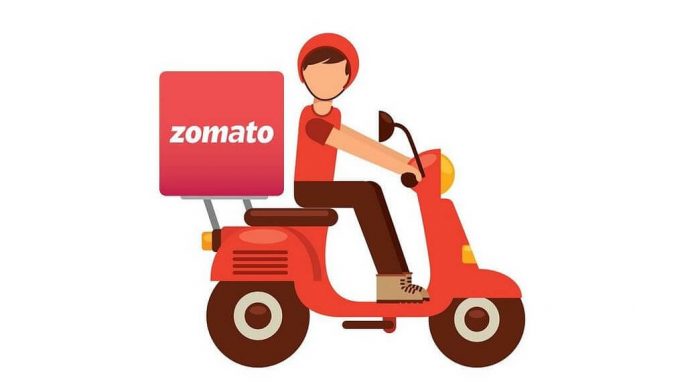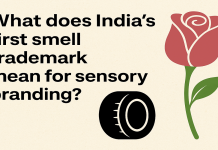This article is written by Tarandeep Singh Khurana, pursuing Diploma in Intellectual Property, Media and Entertainment Laws from LawSikho.
Table of Contents
Introduction
It is a constant endeavour of the enterprises to expand their operations by entering into new geographical markets. Cross border mergers and acquisitions is an effective strategy to meet the desired goal of expansion in a relatively short span of time. The enterprise making the acquisition is able to ride over the goodwill of the acquired company and is able to make inroads in the new market. Thus the acquirer company gains a substantial market share of the customers who are already familiar with the homegrown brand. The acquirer is able to gain significant insights into customer tastes and preferences. Lastly, the acquirer also gets an opportunity to introduce its products and services to the customers. For an online enterprise, the success of such an endeavour would lie in the seamless transition/migration of customers from the acquired platform to its own platform. This would also entail overcoming the technical challenges associated with such integration so as to harness the efficiencies arising out of economies of scale. Pursuing this strategy Zomato a restaurant aggregator and food delivery company having its headquarters in India acquired a popular North American restaurant reviewer, Urbanspoon. The acquisition helped Zomato to enter the markets of the USA, Canada and Australia. The acquisition was aimed at expanding the number of countries where Zomato could provide its services. Urbanspoon was a platform that was solely providing information. It was an enterprise that would provide an online local restaurant guide generated by the aggregate reviews of professional food critics, bloggers and diners. Apart from providing information pertaining to menus and reviews based on customers Zomato also provides food delivery options in India. However, in a short span of time, Zomato closed the operations of Urbanspoon. The acquisition and subsequent closure of Urbanspoon led to a substantial addition of intellectual property assets namely trademarks in Zomato’s portfolio. The present article is an attempt to understand the journey undertaken by Zomato in managing the various trademarks in its portfolio with reference to the geographical region of Canada.
What are trademarks?
Trademarks are marks/signs which provide the owner with the ability to distinguish its products/services and assure the customer of minimum standards of quality that can be associated with the said mark. Apart from the commonly used word marks, trademarks can also be in the form of letters, numerals, drawings, symbols, and three-dimensional features like the shape of packaging of goods. To make the most efficient use of trademarks it is imperative that only the original rights holder/user is using the said trademarks while others are prevented from using the same or similar trademark. This is possible only when the users are able to establish ownership over the said trademarks. The aforesaid goal is achieved either by simply registering the trademark or taking the course of establishing a bona fide prior use and the ensuing reputation along with it. The former is an exhaustive process while the latter is tedious and often fraught with the uncertainties associated with differential yardsticks adopted by the trademark laws of various countries. Further, the registration provides legal certainty to the rights of holders which can be enforced especially in the event of litigation. Thus registration of the trademarks is an all-encompassing process for ensuring trademark protection.
Trademark registration
It is the process by which a trademark is entered into the trademarks registry of a particular country after the due process of trademark search, filing, examination, and opposition if any. If all the conditions are satisfied a trademark is published and granted. The process of registration gives recognition to the rights of the trademark owner. The term of trademark registration can vary across jurisdictions but mostly it is for a period of 10 years which can be renewed indefinitely on the payment of regular fees and establishing regular use of the registered trademark. Since the trademark protection is territorial in nature the registration needs to be done across the jurisdictions of various countries to ensure the goal of trademark protection. The trademarks are either registered individually in all the prospective countries or the Madrid system is adopted. Under this centralized system, a single application is filed along with one set of fees. This gives protection to the said trademark in up to 125 countries. Quite often trademarks are abandoned i.e. their registration is cancelled if they are not used for a considerable period of time ever since their registration. In Canada, the registration of a trademark would require that the trademark is entered on the Trademarks Register of the Canadian Intellectual Property Office of Industry Canada. It takes about 22 to 24 months for a trademark to be registered in Canada.
Zomato in the USA
Zomato Inc. was incorporated as a corporation on 16/12/2014 as Zomato USA Inc. with the State of Delaware Secretary of State Division of Corporations under Section 101 and 102 of the General Corporation Law of the State of Delaware. Its name was changed to Zomato Inc on 18/12/2014. Zomato Inc. is enabled to engage in the business of premium content listing and providing advertising services. Zomato USA, LLC was incorporated as a Delaware limited liability company. It is enabled to do business of premium content listing and providing advertising services. Currently, it does not have any active business operations. The word URBANSPOON has been registered in the United States of America as a service mark. After the acquisition, Zomato USA LLC became the owner of the mark. It is noteworthy that the trademark Zomato was registered in the USA by Zomato Media Private Limited company INDIA i.e. the Indian entity. Zomato dissolved its subsidiary namely Zomato USA LLC after a month of its listing on the National Stock Exchange in India.
Zomato in Canada
Canada is one of the markets wherein Zomato was striving to expand its operations aggressively. Zomato Canada Inc. (“ZCI”) was incorporated on 26/06/2014 under the Canada Business Corporations Act. Zomato Canada Inc is enabled to engage in the business of premium content listing and advertising services. However, with respect to its operations its position is akin to that of Zomato LLC i.e. currently it is not having any active business operations. Currently, Zomato has three registered and two abandoned trademarks under the Canadian Trademarks Database.
Registered trademarks in Canada
Out of the three registered trademarks, two trademarks namely the URBANSPOON word trademark and URBANSPOON design mark were the result/outcome of the acquisition of Urbanspoon by Zomato. Thus the title of the registered trademarks was passed on to Zomato USA LLC. The third registered trademark is that of ‘Zomato’ that was registered by Zomato Media Private Limited India.
The words URBANSPOON and URBAN SPOON were filed for registration by Wanderspot LLC (erstwhile Urbanspoon) which was both the applicant and the registrant in Canada on 16/09/2010. The trademark was published in the Trademarks Journal of Canadian Intellectual Property Office bearing Volume No 58 of Issue No 2973 on page number 101 dated 19/10/2011. The said trademark was registered on 06/03/2012 with the registration number TMA819228. The registration was based on prior use in Canada since 22/08/2007 and used in the United States of America on services. It was registered in the United States of America on 23/09/2008. However, after the acquisition of Urbanspoon by Zomato the change in title of the registered trademark was effectuated on 19/03/2015. In the Canadian Trademarks Database, the trademarks were registered under classes 9, 35 and 43 of the NICE classification. The NICE classification is the outcome of the NICE Agreement (1957). It is an international system for the classification of goods and services that is used in the applications for the registration of marks for the goods and services. This results in harmonization in the international system of the classification of goods and services for the registration of trademarks.
The description given under the NICE classification for the aforementioned class of goods and services is:
- Class 9- It includes apparatus and instruments for scientific or research purposes, audiovisual and information technology equipment, as well as safety and life-saving equipment.
- Class 35- It includes services rendered by persons or organizations principally with the object of help in the working or management of a commercial undertaking, or help in the management of the business affairs or commercial functions of an industrial or commercial enterprise and services rendered by advertising establishments primarily undertaking communications to the public, declarations or announcements by all means of diffusion and concerning all kinds of goods or services.
- Class 43- It includes services provided in relation to the preparation of food and drink for consumption, as well as services for providing temporary accommodation.
However the description of goods and services claimed by the users of the trademark was specifically for:
- Computer application software and downloadable software namely mobile applications for handheld computers, digital electronic devices, wireless devices and internet-capable devices that allow users to locate restaurants and provide information on restaurants, including prices, compilations, rankings, ratings, reviews, referrals, contact information, and recommendations.
- Providing an online interactive website obtaining users’ comments concerning restaurants; providing information, namely, compilations, rankings, ratings, reviews, referrals, contact information, and recommendations concerning restaurants using a global computer network.
The design mark was filed for registration by Wanderspot LLC (erstwhile Urbanspoon) in Canada on 08/01/2014. However, after the acquisition, the requisite changes in its title were made on 19/03/2015. Zomato USA LLC with its office in Seattle Washington became the registrant of the trademark registered in Canada. The said trademark was published in the Trademarks Journal of Canadian Intellectual Property Office bearing Volume No 63 No.3204 on page 177 dated 23/03/2016. It was granted registration on 20/12/2016 with the registration number TMA958494 under the category of ‘design’ trademark (logo trademark) under the code 11.1.1 and A 11.1.2 Vienna Classification which are used for describing knives, forks and spoons. The Vienna Classification is an international classification of the figurative elements of marks. It was established by the Vienna Agreement. Since the design trademark was an extension of the original word trademark the goods and services for which it was registered were similar to the word trademark (URBANSPOON) which was registered in 2010. Under the Class 9, 35 and 43 of the NICE classification.
The mark ZOMATO was filed for registration in Canada on 30/12/2013 bearing Application No: 1658015, as a wordmark by Zomato Media Private Limited. Incidentally, the word ZOMATO has no meaning. The trademark was filed for a diverse set of products and services. The class of such goods and services under the NICE classification was as under:
- Class 1- Chemicals and adhesives.
- Class 16-Paper and printed goods.
- Class 35- Advertising, marketing, promotional and business.
- Class 39- Transportation and storage.
- Class 42- Computer and scientific.
- Class 43- Accommodation, food and drink.
The registration was done for a wide array of goods and services namely:
Goods
- Paper; cardboard; printed timetables; printed tags; printed awards; bookbinding material; photographs; adhesives for use in the furniture industry; adhesives for use in the manufacture of furniture; adhesives for use in the textile industry; adhesives for use in the manufacture of plywood; books; periodical publications.
- Stationery agendas; stationery binders; stationery labels; adhesives for use in the consumer packaging industry.
Services
- Operation of an online interactive computer website for customers to customize and order photo gift products bearing image data of the customer and providing advertising space in a periodical; tour guide services and travel guide services; delivery of food by restaurants; providing advertising space in a periodical; food preparation services; delivery of food by restaurants; restaurant services; café services; bar services; hotel services; take-out restaurant services.
- Advertising agency services; advertising agencies; business management services; business administration services; office management.
The said trademark was published in the Trademarks Journal of Canadian Intellectual Property Office bearing Volume No 61 of Issue No 3130 page 300 dated 22/10/2014. The mark was filed for ‘proposed’ to be used in Canada for wares and on services. It was granted registration on 23/12/2016 bearing the registration number TMA958797. The registered trademark will expire on 23/12/2031.
Abandoned trademarks
Zomato Private Limited was the applicant and registrant for the two abandoned trademarks. The two trademarks were design trademarks namely, the Spoon Design and the Heart Logo. Both the design trademarks were claimed for being in use in Canada since 21/10/2014. However, both of them were given the status of ‘abandoned’ because of the withdrawal of their application under Section 36 of the Trademarks Act R.S.C., 1985, c. T-13.
The Heart Logo was filed for a registration bearing Application Number 1700790 on 03/11/2014 and was granted registration on 04/11/2016. The said trademark was published in the Trademarks Journal of Canadian Intellectual Property Office bearing Volume No 63 No.3221 on page 231 dated 20/07/2016. At the time of the registration the description of the design trademark under the Vienna system of classification was given as:
- 2.9.1Hearts -Note: Including also hearts represented as a symbol or on playing cards.
- 11.1.1 Knives, forks and spoons.
- A 11.1.4 Forks.
- 26.11.3 More than two lines or two bands.
- A 26.11.9 Oblique lines or bands.
- A 26.11.10 Straight lines or bands.
The Heart Logo was registered to comprehensively cover the category of goods and services that were similar to those that were registered for the word mark of Zomato. It was clearly a case of a distinct word and a design trademark for an enterprise covering the same set of goods and services. At the later stage, it was a prudent strategy to focus solely on the adoption and use of a singular word trademark namely Zomato.
The Spoon Design trademark was filed for a registration bearing application number 1753783 on 06/11/2015 by Zomato Private Limited and was granted registration on 14/10/2016. The said trademark was published in the Trademarks Journal of Canadian Intellectual Property Office bearing Volume No 63 No.3218 on page 1532 dated 29/06/2016. The description of the said trademark at the time of registration under the Vienna classification was given as:
- 11.1.1 Knives, forks and spoons,
- A 11.1.2 Spoons,
- 26.4.1 Squares,
- 26.4.4 Other irregular parallelograms, trapezia and quadrilaterals, quadrilaterals containing one or more rounded corners,
- A 26.4.5 One quadrilateral,
- A 26.4.16 Quadrilaterals containing other figurative elements,
- A 26.4.24 Quadrilaterals with dark surfaces or parts of surfaces.
The Spoon Design trademark was registered for the following goods and services:
Goods
Computer application software and downloadable software in the nature of mobile applications for handheld computers, digital electronic devices, wireless devices and Internet capable devices that allow users to locate restaurants and provide information on restaurants, including prices, compilations, ranking, ratings, reviews, referrals, contact information and recommendations.
Services
- Advertising the goods and services of others; business management, business administration; online advertising services for others via a computer communications network; providing a searchable online advertising guide featuring restaurants, restaurant take-out and delivery services, bars, cafés, hotel services and eateries; provision of advertising space by electronic means namely, websites and mobile device applications and global information networks; providing a website featuring information namely, ratings, reviews and recommendations concerning restaurants, restaurant take-out and delivery services, bars, clubs, cafes, hotels and eateries.
- Provision of information namely, ratings, reviews and recommendations of restaurants, restaurant take-out and delivery services, bars, clubs, cafes, hotels and eateries.
- Provision of online ordering services for food and drink, namely providing online ordering services for take-out and delivery services from restaurants, bars, clubs, cafes, hotels and eateries.
Conclusion
Zomato by virtue of acquiring Urbanspoon was able to add a substantial number of customers and restaurants primarily in the newer geographical markets. Since Zomato is a two-sided platform, the acquisition was a massive value addition. It was also significant in terms of invaluable data that could have been harnessed to understand the unique market conditions. However in a relatively short span of time following its acquisition the operations of Urbanspoon were shut down. The content and the accounts of the users were directed to Zomato. Clearly, the goal was to bring the brand/trademark of Zomato at the forefront instead of allowing Urbanspoon to continue as an entity under its tutelage. The trademark Zomato was covering a wider class of goods and services as compared to Urbanspoon. It seems the strategy was to phase out the acquired brand of Urbanspoon at the earliest and make the customers aware and adopt the new brand, namely Zomato. The aim was to reduce the learning curve for Zomato so as to acquire a position of strength in the newer geographical markets of the USA and Canada. This was necessitated by Zomato’s appetite and craving to compete with its rival Yelp. However, the operations in Canada and USA have been rolled back due to increased losses and insignificant revenue contributions from these markets. This also includes the closure of another acquisition of Zomato namely, NexTable a US-based online table reservation platform that was acquired by Zomato in 2015. The closure was driven by the small size of the table reservation and management in the USA. Despite investing huge sums on acquisitions there was a failure to monetize the assets namely goodwill and trademarks to their advantage. There was a futile attempt to merge the spoon trademark of Urbanspoon with the word Zomato. However, Zomato had to discard the spoon and rely solely on the word Zomato. In hindsight, the pursuit of acquisitions did not yield the desired results and it was merely a case of squandering of capital. Clearly, a judicious approach while acquiring newer enterprises could have been adopted. In a recent noteworthy development, Zomato has closed its operations in Lebanon.
The winding-up of operations in the loss-making centres and focusing solely on the profit-making centres was a decision in the right direction, albeit a lesson learnt after swallowing an expensive bitter pill of acquisitions.
Students of Lawsikho courses regularly produce writing assignments and work on practical exercises as a part of their coursework and develop themselves in real-life practical skills.
LawSikho has created a telegram group for exchanging legal knowledge, referrals, and various opportunities. You can click on this link and join:
https://t.me/joinchat/J_0YrBa4IBSHdpuTfQO_sA
Follow us on Instagram and subscribe to our YouTube channel for more amazing legal content.
 Serato DJ Crack 2025Serato DJ PRO Crack
Serato DJ Crack 2025Serato DJ PRO Crack











 Allow notifications
Allow notifications


